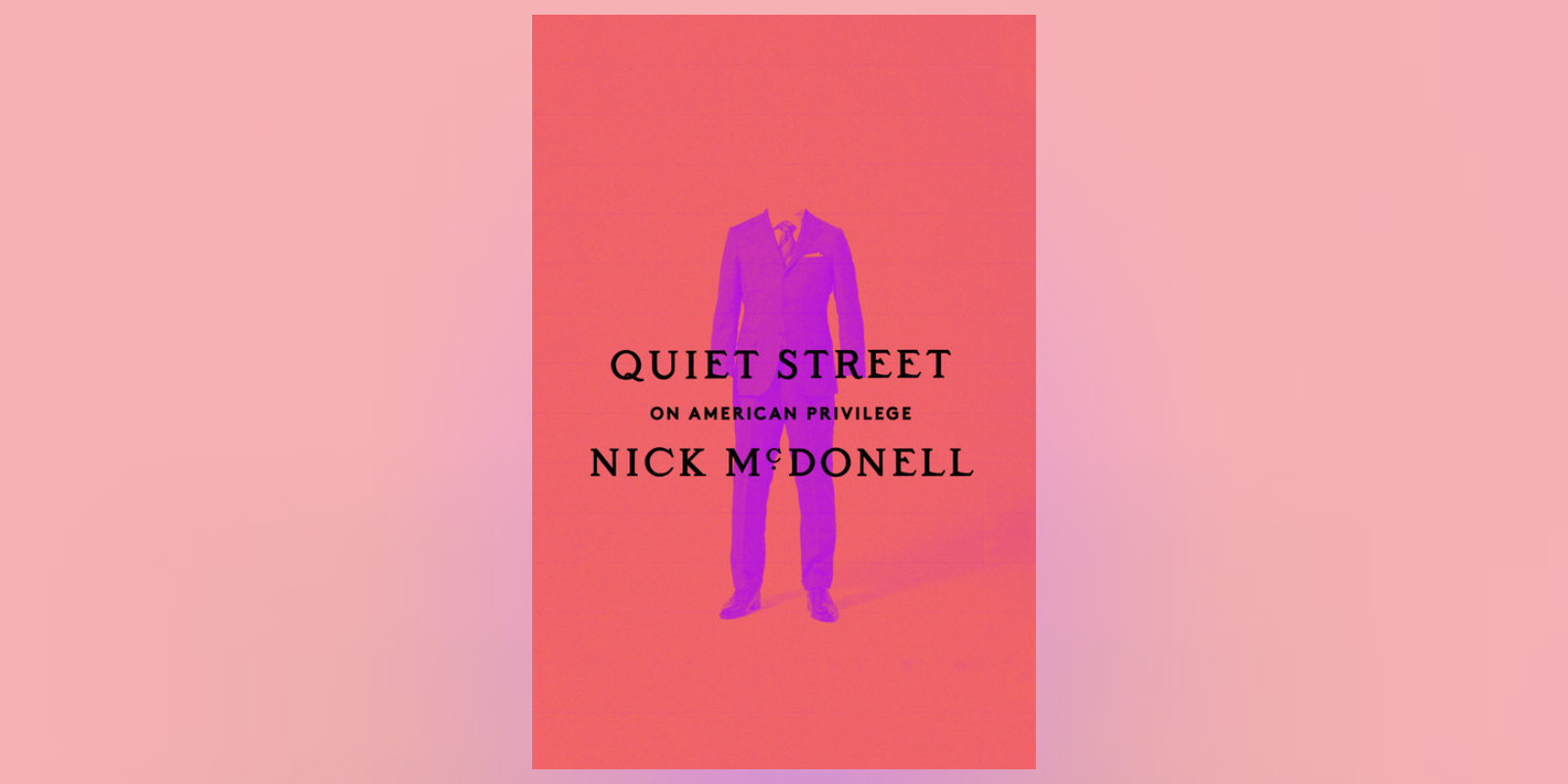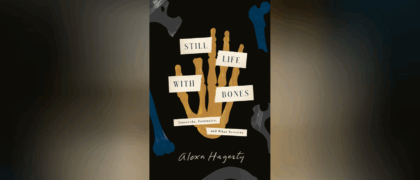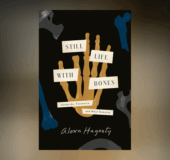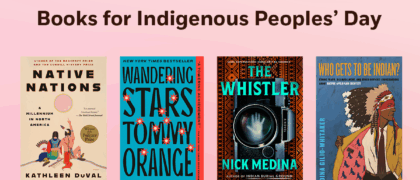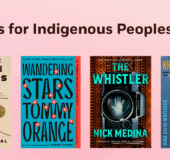Quiet Street is a bold and moving exploration of the American elite that exposes how the ruling class perpetuates cycles of wealth, power, and injustice. Searing and precise yet always deeply human, Quiet Street examines the problem of America’s one-percenters, whose vision of a more just world never materializes. Who are these people, how do they hold on to power, and what would it take for them to share it? Quiet Street pursues these questions through the highly personal, but universal, experience of growing up and coming to terms with the culture that made you.
The opulence of New York City is famous. Countless streaming programs, articles, novels, films, and social media feeds are dedicated to the markers of American oligarchy. Shows and films like Succession, The Devil Wears Prada, The Wolf of Wall Street; TikTok videos like what your rich mom coffee shop says about you: “If you get your coffee at Via, you’re a seventeen-year-old who is probably richer than me”; novels like The Bonfire of the Vanities and Breakfast at Tiffany’s. Some examples of the genre, like The Great Gatsby, are staples of public education. The wealth is not a secret; neither is the inevitable violent decadence. I remember a schoolmate who bragged about defecating in bed so the maid would have to clean it up. Such behavior extended to the highest reaches of power, as was clear in President Trump’s casual sexism and violence. One of his children and one of his grandchildren attended the same school as I and the aforementioned defecator.
Still, I have affection for this school, which was called Buckley. It had a reputation for rigor, conservatism, old wealth, and athletic dominance over the dozen or so “top tier” private schools in the city. All sat in a highly developed hierarchy. “Chapin girls marry doctors, Brearley girls become doctors, Spence girls have affairs with doctors,” went one well-known saying about those particular girls’ schools. Still, all the schools had more in common than not, and if a child attended any one of them, he’d be well prepared to achieve, maintain, and perhaps surpass his parents’ position in society. This preparation was accomplished as much by what was not taught as what was.
For example. At Buckley, we had Quiet Street. It began with a turn we’d make on the charter buses—not yellow school buses—that we rode out to our playing fields most weekdays of the fall and spring. A right turn onto 124th Street in East Harlem. As we turned, one of the coaches— “sport-sirs,” we called them—would announce “quiet street,” and that bus, full of white adolescent boys, fell silent. No whacking of shoulder pads or lacrosse sticks, no trash talk, no jokes, no whispers, no pantomimes. Long before, some boy had called a racial epithet out the window, and a Black pedestrian, in response, had thrown something at the bus.
Or so I heard, long after I graduated. As a student, I never learned the details of the story. It was not widely or formally discussed. No one ever explained, and few asked. I knew only that to speak on Quiet Street was forbidden. In ten years at the school, on nearly a thousand bus trips, I remember none of my peers breaking the rule. Such was its mysterious power. What was going on? I recently asked some of my old classmates. All remembered Quiet Street, and some vague version of the origin story above. One said this:
Seems kind of silly, and also, I don’t know, vaguely racist, maybe? You’re basically like, “If we’re not quiet on this street then the horrible people who live here are going to jump us,” you know what I mean? . . . Maybe not even vaguely racist. Maybe overtly?
My classmate understates the problem. Quiet Street was the manifestation of a culture that preferred silence to discussion of race and class. These issues could not be discussed without raising questions that might undermine, even reveal as hollow, the school’s motto: Honor et Veritas, or “Honor and Truth.” But the nation’s inequalities and injustices were so vast, obvious, and incendiary that they could not, credibly, be ignored. And so Quiet Street both acknowledged and elided the violence of society, through memorial silence.
I recently received a school-community-wide email from Buckley’s headmaster, emphasizing the importance of diversity and explaining steps taken in response to the murder of George Floyd. In my own eighth-grade class, thirty students were white and three were people of color—of Chinese, Filipino, and Guyanese descent, respectively. Today, according to the school, 34 percent of families self-report a non-white parent. Other things have changed too. The Lord’s Prayer rotates with those of other religions at Friday assembly. The school closes for Jewish holidays. As of 2001, female faculty have been permitted to wear pants, rather than dresses or skirts, to work. And though no one is quite sure when it ended, Quiet Street, I am told, no longer exists.
Officially, it never did. There were a lot of powerful, off-the-books rules like that, so powerful they didn’t even seem like rules. They seemed almost like physical laws, like gravity—norms, a social scientist might call them—and they governed our lives long after we left Quiet Street and on-ramped to the Triborough Bridge. Thereafter, we filled the bus again with noise and crossed the Harlem River to Randalls Island, to our playing fields. These happened to look out on another island: Rikers—a prison complex, where, of some six thousand inmates, 90 percent are Black or Latinx.
***
In The Politics, Aristotle observed that citizens “who enjoy too many advantages—strength, wealth, connexions, and so forth—are both unwilling to obey, and ignorant how to obey, the law.” Children at schools like Buckley, however, had few problems with “the law,” and almost never ended up anywhere like Rikers Island. They could, for fun, kick garbage cans into traffic on Park Avenue in the velvet dusk of a spring week day and suffer no consequences. They could be arrested for, say, vandalism and underage intoxication, mouth off to the arresting officer—“Yeah, I got a bazooka in my pocket”—and be released without charge from the local precinct into the care of a teenage sibling. Passing into adolescence, such children often developed a sense of invincibility. This is common enough among adolescents but lasted, in some of the people I grew up with, deep into adulthood. The shock, rage, and chagrin expressed by the rare one percenter sent to prison were genuine. They were genuinely surprised that the world did not bend to their will, as it had since childhood. One schoolmate of mine, convicted of murder despite his insanity plea, famously wrote a letter to the Manhattan district attorney noting that he too was “a graduate of Buckley”—as though this were a basis on which to begin clearing up the charge. The connection usually didn’t have to be mentioned, and especially not in writing. On the off chance no mutual friend existed to make a necessary introduction, there were other ways to signal membership in the tribe.
These were drilled for years—the handshake, for example. Teachers manned the door each morning and might deny a student entry until he had shaken hands and voiced a greeting to the teacher’s satisfaction.
“Good morning, sir.” Firm grip, direct eye contact, tie knotted, ten years old.
“Good morning, Mr. McDonell.”
The best manners teach empathy. We learned some, and mostly grew up into kind men. This did not mean we grew up into good men. But kindness, interpersonally, was easy because, generally, everyone was kind to us. While all families are worlds unto themselves, we were universally spared the societal traumas of racism, poverty, state violence. We never even had to wait in line, really. We were handled with silk gloves at the Knickerbocker Cotillion dance classes. We ate the freshest vegetables and seafood. Our world was gentle, and so, while there was some bullying, we were usually gentle with each other.
We were also taught to help anyone we saw in distress. This was one of several reasons whom we saw was so carefully circumscribed. Really we were blinkered, even as our chivalrous good manners were explicitly connected to the Gospel of Luke—“to whom much is given, much is expected,” as quoted by Christopher Wray, director of the FBI, a Buckley boy, at a recent graduation. We were expected to excel, to give back, to serve.
But to serve whom? The only people we knew, outside The Bubble, were the people who served us. We were not boarding with the rest of the passengers. And consider that, failing the handshake test, a student was not allowed into the building. He was sent around the block, perhaps in the snow—as I was, January 1996, penny loafers soaked. What, then, was a child to make of someone who didn’t know—who was never taught—the proper way to shake hands? Should they be let in, out of the snow?
There is a violence to good manners. A thank-you note, standing up when a woman enters the room, holding the door—we learned soon enough that these thoughtful practices could also be pieces of armor, or tools that might allow you, say, to get your younger brother out of the precinct without a problem. It was not, of course, using the word sir that did it. It was what loomed behind a white sixteen-year-old in an Armani tie—power. In certain contexts, a properly executed handshake sent a message not unlike a snake’s rattle.
The handshake was the most basic tool. I heard parents put it this way: “I wanted to raise them so that they knew how to do everything.” And by college, it must be said, the level of competence was sometimes very high. Twenty-year-olds who could, variously, sail long distances, play the piano, read Latin and Greek, speak French, Mandarin, et cetera. They could play all the games: tennis, football, racquets, court tennis, chess, backgammon, bridge. They could confidently deliver a eulogy, a toast, a speech on nearly any matter of the day, and were excellent drivers, even, very occasionally, pilots. They knew how to read architectural drawings—from the renovations—and were familiar with pistols, rifles, shotguns, dog training, falconry, cigars, esoteric precious stones, horses and horsemanship, wines, cocktails, cinema, first aid, where and in what style to have suits and shoes made and repaired, basic psychopharmacology, how to cook and serve dinner for twenty, by oneself, or with “help,” discreet polyamory, tax strategy for the estate and individual, the real estate market and how to access it in several cities, both American and European, art history, alpine and cross-country skiing, how to ask a favor from a chief of staff, flower arranging, attractive use of social media. And on and on. World-class pimple popping, masturbation, and video-gaming too.
Such skills arose not from any extraordinary talent or discipline but from the enormous resources invested in each child. And though I have here emphasized traditionally highbrow skills, we were groomed to be comfortable at every level of culture, in every room—to appreciate Taylor Swift as well as Tchaikovsky, to make small talk with the custodian as well as the senator. The deeper lessons were confidence, poise in any context, what sociologist Shamus Rahman Khan calls ease. Old-fashioned exclusionary markers could in fact be a liability, in the same way an all-white classroom was. All the world was ours not because of what we excluded or inherited but because of our open-minded good manners and how hard we worked—which, all agreed, was very hard indeed. This superficial meritocracy masked, especially to ourselves, a profound entitlement.
Copyright © 2023 by Nick McDonell. All rights reserved. No part of this excerpt may be reproduced or reprinted without permission in writing from the publisher.
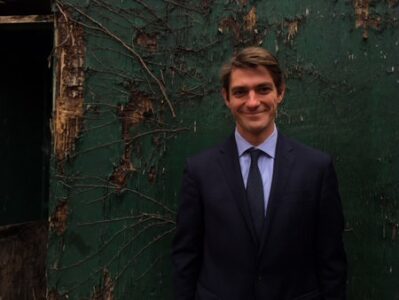 NICK McDONELL is the author of the novels Twelve, The Third Brother, An Expensive Education, and The Council of Animals, as well as a work of political theory, The Civilization of Perpetual Movement, and four books of reportage on the wars in Iraq and Afghanistan, including The Bodies in Person. He has contributed reporting and essays to Harper’s Magazine, London Review of Books, Libération, The Paris Review, newyorker.com, and TIME, among other publications. His work has been published in twenty-three countries and appeared on best-seller lists around the world
NICK McDONELL is the author of the novels Twelve, The Third Brother, An Expensive Education, and The Council of Animals, as well as a work of political theory, The Civilization of Perpetual Movement, and four books of reportage on the wars in Iraq and Afghanistan, including The Bodies in Person. He has contributed reporting and essays to Harper’s Magazine, London Review of Books, Libération, The Paris Review, newyorker.com, and TIME, among other publications. His work has been published in twenty-three countries and appeared on best-seller lists around the world

